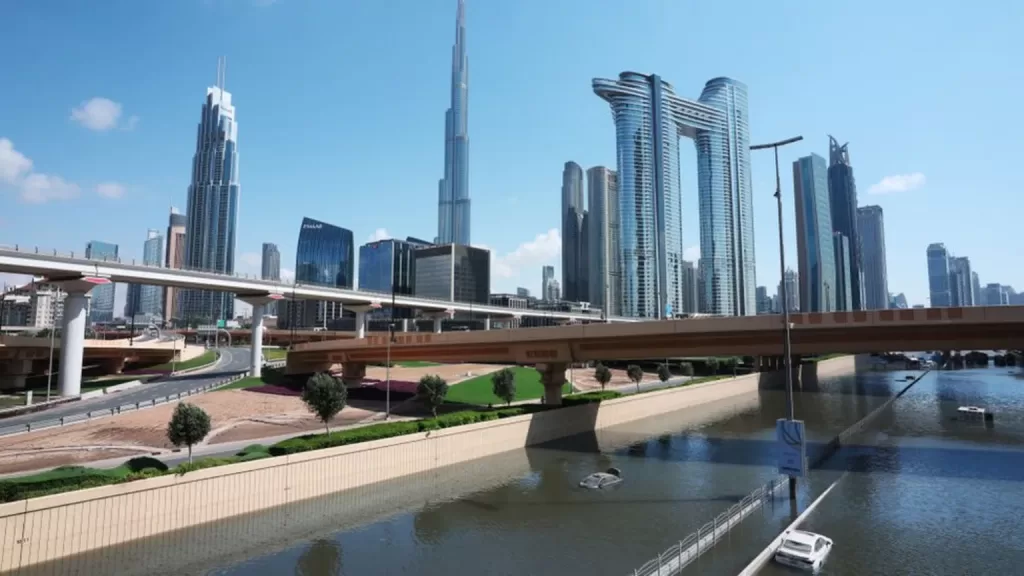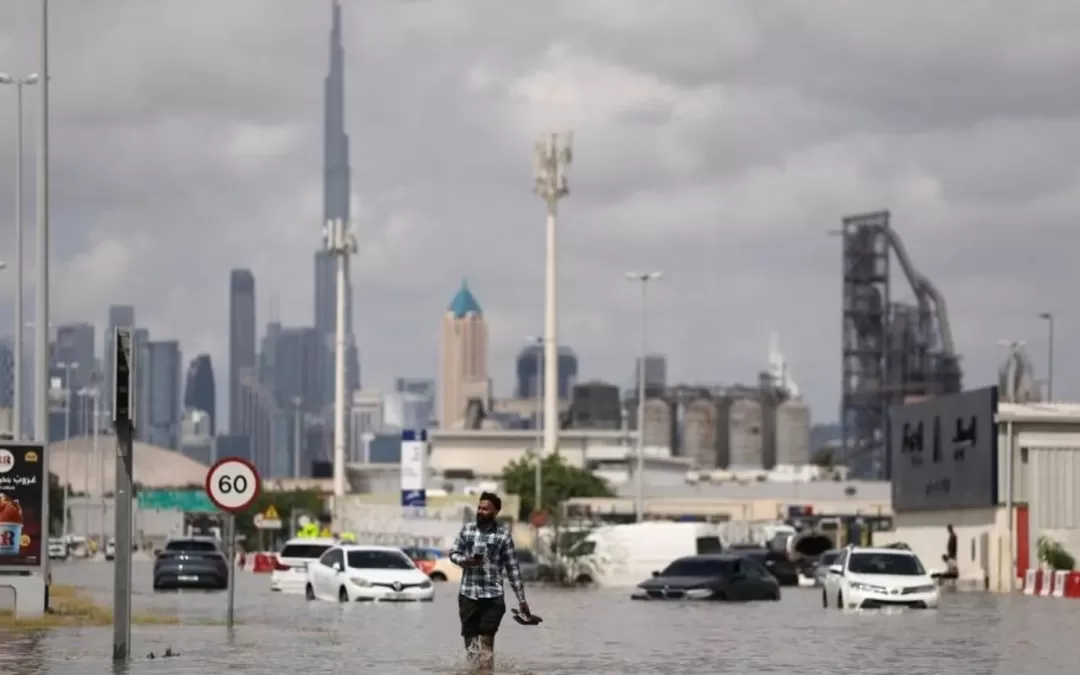Penang Island City Council mayor Datuk A. Rajendran speaks during the Earth Cleanup Event Penang press conference in George Town April 19, 2024. — Bernama pic.
By Sean Seddon,BBC News
If Dubai is the ultimate Instagram city, then this was the week the filter came off.
Over an unprecedented 48 hours, the skies over the United Arab Emirates darkened and torrential storms washed away Dubai’s picture-perfect image.
About 25cm (10in) of rain – roughly twice the UAE’s yearly average – fell in a single day, leaving much of the city’s outdoor infrastructure under water.
Jordache Ruffels, a British expat living in Dubai, told BBC News experiencing the storms was like “living through the apocalypse”.
He watched from his apartment overlooking the city’s usually tranquil marina as furniture was flung from balconies by gale-force winds and Rolls Royce cars were abandoned on roads suddenly transformed into rivers.
“We live high up and could barely see a thing past the balcony… It felt like midnight in the middle of the afternoon,” he said.
A cluster of four large storms, each of them towering 15km (9 miles) into the atmosphere and fuelled by a powerful jet streams, rolled into the UAE one after another, according to forecasters at BBC Weather.
Heavy rainfall over the desert landscape of the Gulf is not unheard of, and residents were warned via a public alert system – but Dubai’s weather infrastructure was unprepared for the worst rain since 1949.
In many ways, few modern cities would have coped with the size of the deluge that hit Dubai this week.

Roads near some of Dubai’s most famous landmarks were inundated within hours
The city’s top attractions – largely indoors to protect from the searing heat – struggled to handle the sudden influx of water.
Caroline Seubert, 29, from the UK, was with her husband at a shopping centre when the storm hit.
“The mall was flooded, ceilings were collapsing,” she said. “We were told to leave, but the metro was shut and the taxis were not running.
“We were stranded, had to sleep in the mall lobby overnight.”
Matt Weir, a British teacher who has been based in Dubai for 10 years, said “people were aware” a storm was coming but the force of it left “neighbourhoods under water”.
While the forecast looks more typically blue and sunny for the week ahead, some storms remain possible – and with roads and other infrastructure still crippled, Dubai’s rulers are counting the cost.
The UAE’s President Sheikh Mohammed bin Nahyan issued a public order for “authorities to quickly work on studying the condition of infrastructure throughout the UAE and to limit the damage caused”.
Government employees have been told to work from home until the end of the week, while private firms have been encouraged to do the same. Schools across the country have been shuttered.
So far, the official death toll in the UAE is just one person – an elderly man who died when his vehicle was swept away in Ras Al Khaimah, according to local media.
Source: BBC.COM



Recent Comments